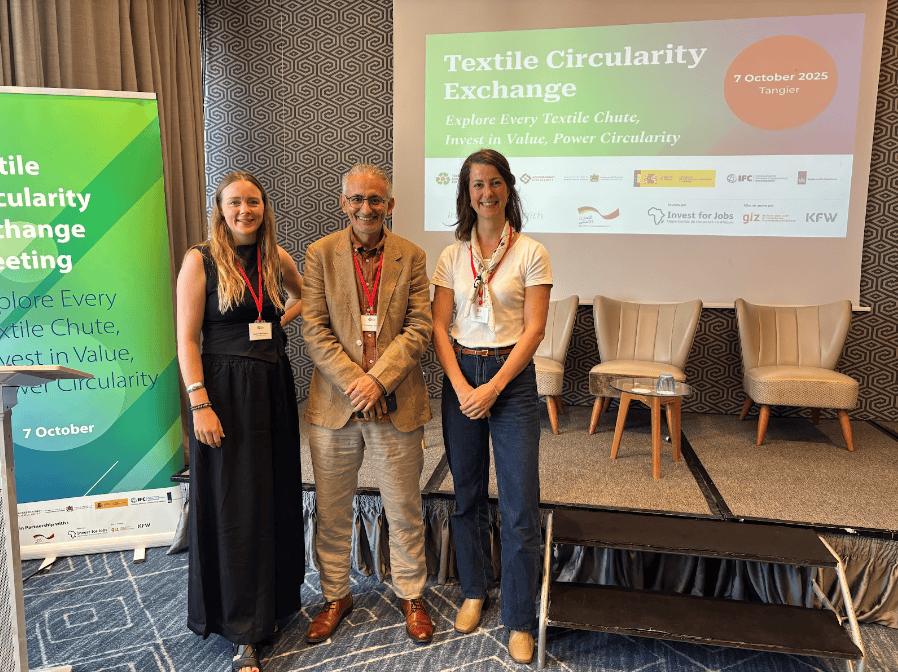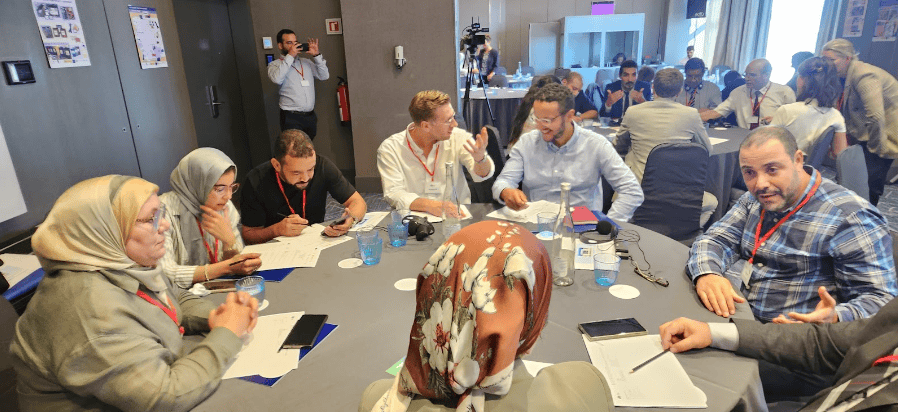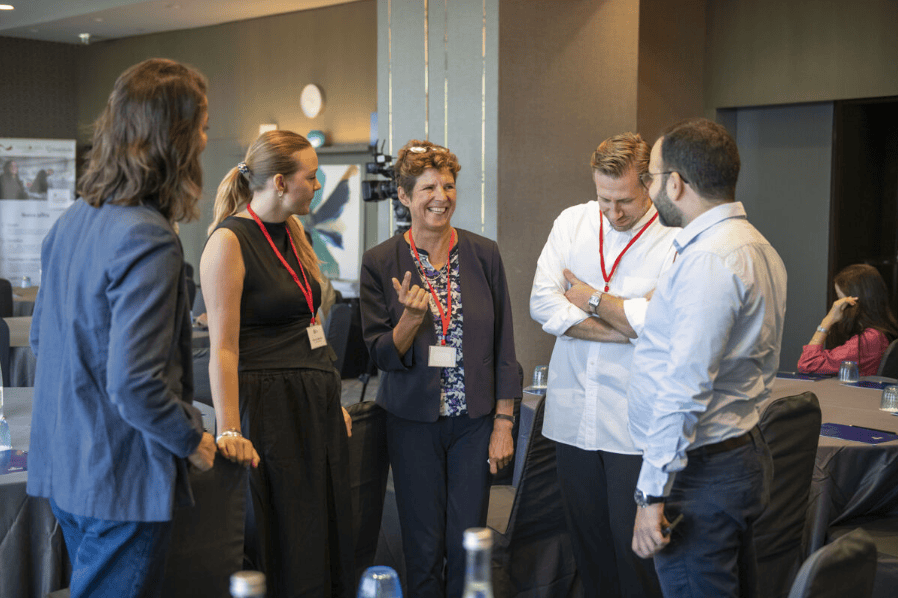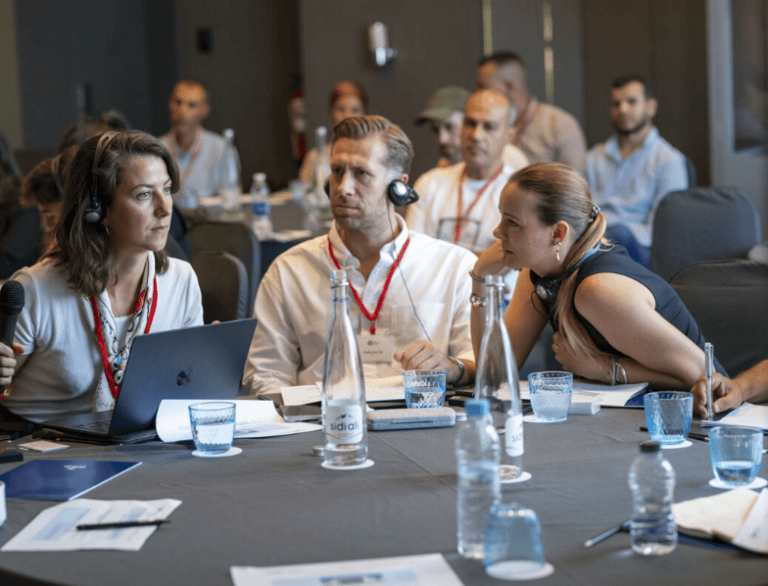On October 7, 2025, Closed Loop Fashion participated in the Morocco Textile Circularity (MoroccoTex) event, held at the Hilton Tangier City Center. The full-day forum, hosted by the International Finance Corporation (IFC) World Bank, in partnership with Deutsche Zusammenarbeit (German Cooperation), Invest for Jobs Special Initiative ‘Decent Work for a Just Transition’ under the Federal Ministry for Economic Cooperation and Development (BMZ), Deutsche Gesellschaft für Internationale Zusammenarbeit (GIZ) Morocco and Kreditanstalt für Wiederaufbau (KfW), convened key public and private stakeholders to accelerate dialogue and collaboration on building a circular textile ecosystem in Morocco.
The day began with a presentation of findings from interviews with 32 textile waste collectors in the Tangier region, revealing that 80 to 90 percent operate informally, often as individual or family-run microbusinesses. Despite being the backbone of Morocco’s waste collection system, most collectors work in difficult conditions without protective equipment, adequate facilities or proper storage areas. The workforce is predominantly women, who often lack social protection and formal recognition for their contribution to the sector.
A lively panel discussion followed, bringing together individual collectors, associations, and private waste companies. Speakers underscored that informal collectors mainly focus on waste collection rather than valorisation and face financial constraints that limit growth. Yet they hold deep practical knowledge of materials and local markets. Participants agreed on the importance of connecting informal and formal systems, where formalisation ensures traceability while informality provides reach and practical know-how.
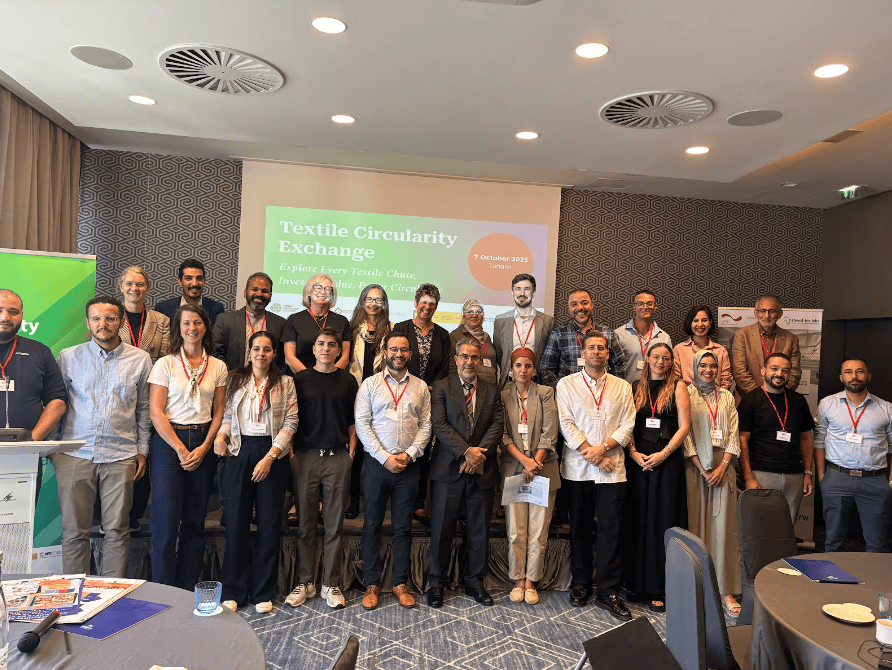
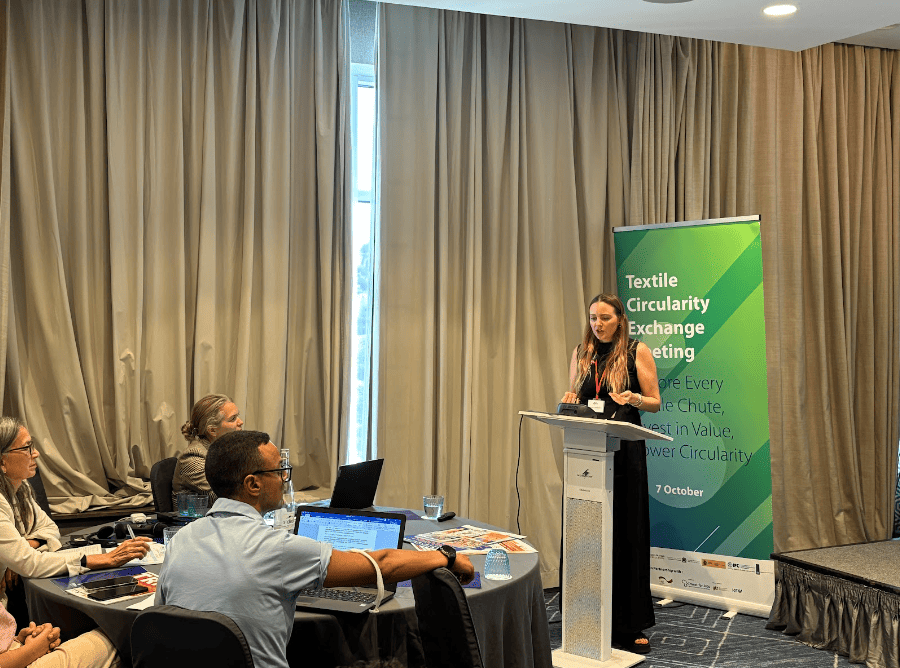
Following this, the IFC shared policy recommendations to establish a flexible framework for textile waste management. The discussion explored how Morocco could redefine what constitutes waste versus sub-product and clarify who holds ownership and responsibility for textile waste across the value chain. As the European Union’s new circularity regulations take effect, brands will increasingly require traceability and environmental accountability from manufacturers, making policy coherence an urgent priority.
The afternoon focused on transparency, data, and collaboration. Green Story explained how the Ecodesign for Sustainable Products Regulation (ESPR), the Digital Product Passport (DPP) and Life Cycle Assessment (LCA) are interlinked tools that will soon require manufacturers to provide clear environmental information. The team later shared LCA findings for recycled Moroccan cotton, demonstrating how data can guide material design and investment strategies.
Moreover, the International Trade Center (ITC) introduced its GTEX/MENATEX II program, including a free online learning platform that offers accessible training on sustainable and circular textile practices. Accelerating Circularity complemented this by sharing results from its cotton recycling trials and unveiling a recycled Moroccan cotton product alongside its Textile Waste Manual, providing practical guidance for local recyclers and innovators.
Representing Closed Loop Fashion (CLF), Marina Chahboune (Founder & Sustainability Specialist) and Jenny Puts (Circularity Specialist & Project Manager) joined the “Pilot Progress Updates” session to share outcomes from CLF’s ongoing work in Morocco. This project is conducted by Closed Loop Fashion on behalf of the German technical development corporation, the Deutsche Gesellschaft für Internationale Zusammenarbeit (GIZ) GmbH, on behalf of the German Federal Ministry of Economic Cooperation and Development (BMZ) in the framework of the Special Initiative “Decent Work for a Just Transition” (Invest for Jobs). Their presentation of the project titled, “Development of a Circular Polyester Recycling System between Private Sector Stakeholders in the Moroccan Textile Sector,” showcased a year of progress in mapping textile waste streams across Tier 3 to Tier 1 manufacturers, linking these with recycling technologies and conducting both mechanical and thermo-mechanical trials. We presented both the challenges and opportunities, alongside an economic feasibility study exploring Morocco’s potential to become a regional hub for textile waste sorting.
The event concluded with optimism and a sense of shared purpose. Across all discussions, a clear message emerged: Morocco’s circular textile transition represents not only an environmental commitment but also a pathway to economic opportunity and social inclusion. With evidence-based initiatives like ’s recycling trials, IFC’s policy efforts and the engagement of national and international partners, Morocco is steadily turning circularity from concept into concrete action.
